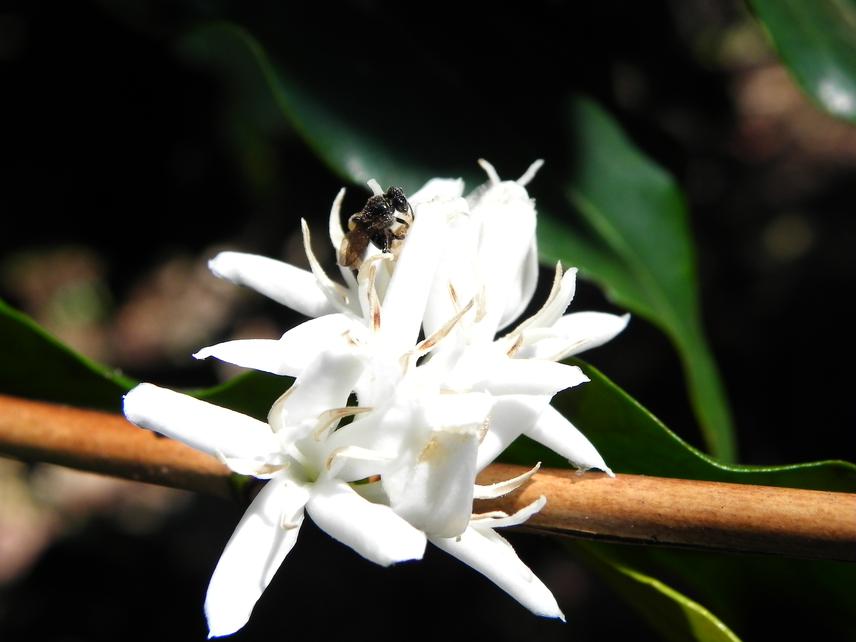Fernanda Teixeira Saturni
The aim of the project is to understand the relation between landscape composition, biodiversity and pollination in order to enable a coffee production that benefits both the farmer and the conservation interests.

Native bee visiting coffee flower.
Despite the crescent number of studies on pollination, few studies have quantified the pollination provided by native species at landscape scale. Even less studied this topic in tropical environments.
Seeking to cover this gap, this study will focus on pollination provided by wild insects in coffee plantations in the Brazilian Atlantic Forest. Pollination and insect’s diversity will be evaluated in landscapes with different amount of forest cover. The study area is located between São Paulo and Minas Gerais, in a region known as Mogiana, in southeastern Brazil. This region was originally covered by Atlantic Forest and it is now an important area for coffee production. 10 landscapes with 2km radius and different levels of forest amount will be selected in this region. Those landscapes are composed mostly by coffee crops and remaining forest.
The aim of the project is to understand the relation between landscape composition, biodiversity and pollination in order to enable a coffee production that benefits both the farmer and the conservation interests. Specifically, the objectives are:
1) Describe the relation between landscape forest cover and pollination in the coffee plantations,
2) evaluate the relation between the distance of a forest fragment and pollination in coffee plantations;
3) Identify possible thresholds for pollination related to loss of natural habitat.
Incorporating ecosystem services at landscape planning is essential to move forward to sustainable development (Millennium Ecosystem Assessment 2005). We believe that the description and quantification of this ecosystem service for the coffee yield contribute significantly for the decisions taken by farmers towards a more sustainable coffee production. In addition, our findings can collaborate with the construction of knowledge and enrich the academic discussions. Also, the results can collaborate with government decisions by indicating possible ways of sustainable development and allowing better predictions on how the recently updated Brazilian legislation “Forest Code” will impact biodiversity and ecosystem services.